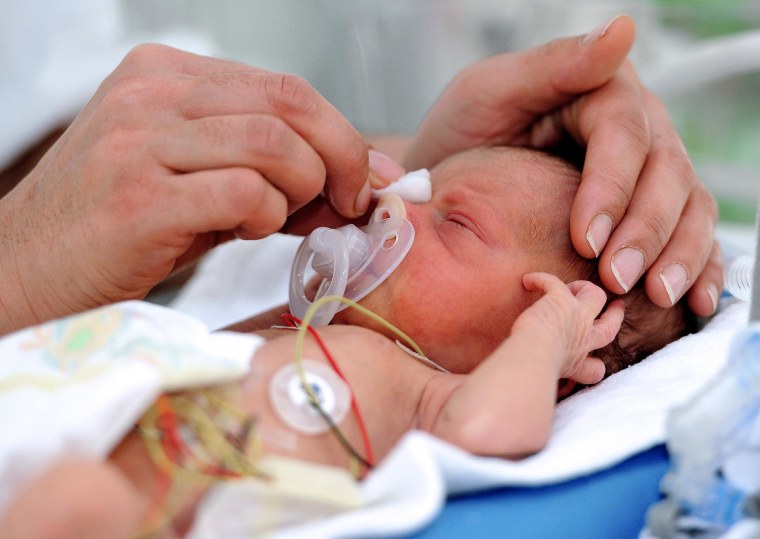
A new study on diet and pregnancy suggests that what you eat when you are expecting is as important as what you don’t.
Women who ate plenty of fruits and vegetables and who tried to drink water instead of soft drinks were less likely to have premature babies than women who ate more “Western” diets, a big study in Norway has shown.
It wasn’t that women who ate pizza, tacos and sweets were more likely than average to have premature babies, the researchers found. It was that healthier eating lowered the risk by about 15 percent.
Dr Linda Englund-Ögge of Sweden’s Sahlgrenska Academy and colleagues studied a big database of 66,000 Norwegian women who are taking part in a larger study. One of the things they did was fill out a food diary while pregnant.
Englund-Ogge’s team classified their diets into three broad types: a “prudent” diet with plenty of fruits and vegetables and not too much junk food; a “traditional” Nordic diet with boiled potatoes, fish and gravy; and a more typical modern “Western” diet with processed white flour, sweets and snacks.
“Our results indicate that increasing the intake of foods associated with a prudent dietary pattern is more important than totally excluding processed food, fast food, junk food, and snacks,” they wrote in their report, published in the British Medical Journal.
It makes sense, says Dr, Walter Willett, a nutrition expert at the Harvard School of Public Health who was not involved in the study. “It does fit with what we have learned about diet and pregnancy,” he told NBC News.
“Dietary pattern has been linked to a lower risk of diabetes. It has been linked to a lower risk of hypertension.” And high blood sugar and high blood pressure are both big risks in pregnancy that in turn contribute to the risk of pre-term birth.“Those are things that impair development of the fetus,” Willett said.
The U.S. infant mortality rate is higher than in most other developed countries at 6.14 infant deaths per 1,000 births. The average for the Organization for Economic Cooperation and Development, which groups developed countries, is around 4 per 100,000.
The study doesn't show this, but it's possible poor diet contributes to the high U.S. rate, Willett says.